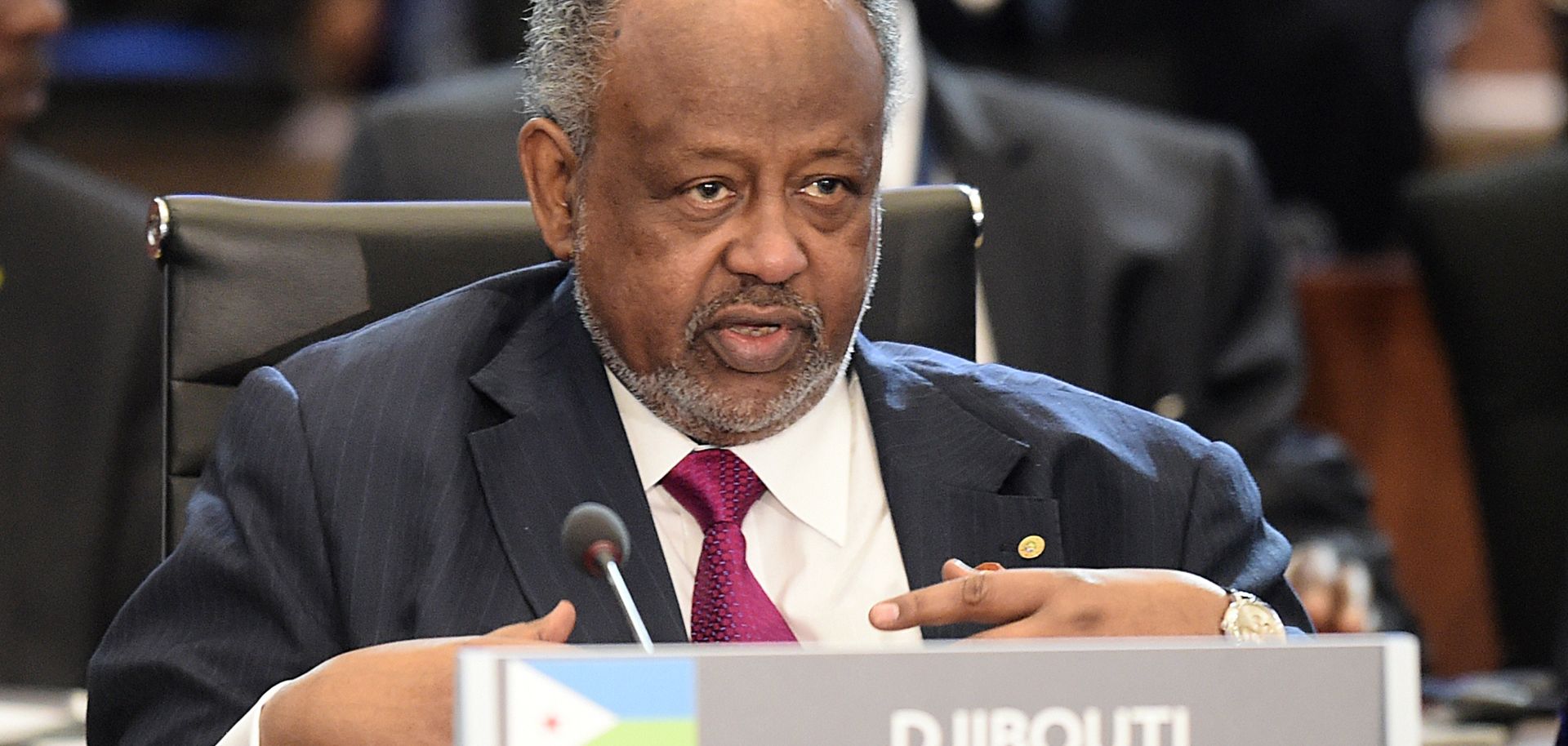ASSESSMENTS
Despite Instability, Djibouti's Position Limits Government Actions
Aug 28, 2014 | 09:30 GMT

(JIM WATSON/AFP/Getty Images)
Summary
A member of the Presidential Guard for Djiboutian President Ismail Omar Guelleh opened fire in Djibouti's international airport on Aug. 25, just minutes after the president's departure. In the attack he wounded two other guards and the president’s physician in what may have been an assassination attempt against Guelleh. The attack follows a July 17 incident in which the government arrested several members of the military amid rumors of a coup and a heavy security presence in the streets of the capital. The airport assault highlights the continued potential for internal opposition to Guelleh's rule, as he now serves his third term since 1999 and could be aiming for a fourth in 2016. These internal rumblings, however, have their limitations. The regime has proven itself able to weather opposition in the past and, more important, occupies a critical position in the international system, ensuring policy continuity in spite of instability.
Subscribe Now
SubscribeAlready have an account?
